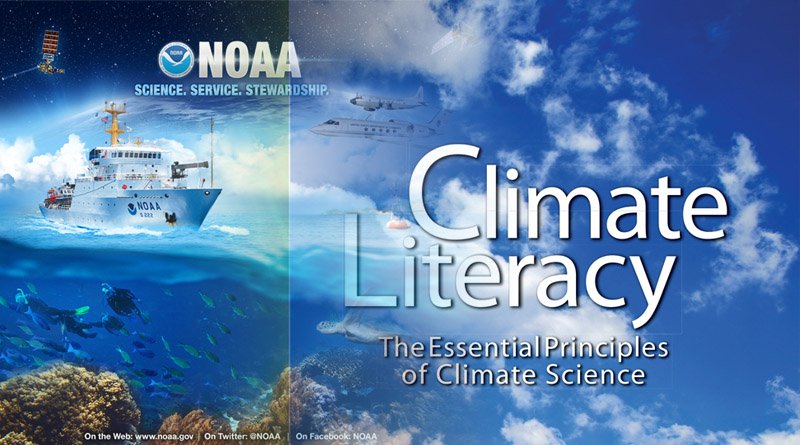The last climate literacy guide, “Climate Literacy: The Essential Principles of Climate Science,” was released in 2009.

As part of the U.S. Global Change Research Program (USGCRP), NOAA is seeking input on the format, subjects, and content of a crucial national climate literacy guide that has been used for more than ten years by educators, decision-makers, and scientists both domestically and abroad.
According to Frank Niepold, senior climate education programme manager for NOAA, “The climate literacy guide is an essential reference for communities across the country.”
“Its diversity of communities that offer viewpoints to it gives it strength. In order to ensure that we produce the best, most effective update to the guide, we need a sizable public response. Please provide feedback and ideas.”
The last climate literacy guide, “Climate Literacy: The Essential Principles of Climate Science,” was released in 2009. Eighteen federal agencies and departments, in partnership with many science and education organizations, produced it.
The guide, available in English and Spanish, helped inform national education standards adopted or adapted by many states.
The goal of the 2009 guide was to outline the essential knowledge and abilities required for climate literacy. Knowing how to evaluate information about climate that is credible from a scientific standpoint, effectively communicating about climate and climate change, and being able to make responsible decisions about actions that may have an impact on the climate are among the key knowledge and skills listed in the guide.
The interagency federal team at USGCRP, which is co-led by NOAA and the Smithsonian Institution, is updating the climate guide to reflect contemporary climate science, engagement, workforce development, education methods, and include a focus on informed climate decisions.
The USGCRP aims to produce an updated guide that is generally applicable and offers helpful information to all Americans. The team is interested in research from all disciplines as well as personal narratives and experiences, Indigenous knowledge, local knowledge, and lived experience.
According to co-leader Carol O’Donnell, director of the Smithsonian Science Education Center and member of the InterAcademy Partnership Science Education Global Council, “Climate literacy is inherently transdisciplinary and affects us on both a local and global scale.”
The Smithsonian is happy to work with NOAA and other federal partners as we gather feedback from the Climate Literacy Guide’s users around the country and the world.
